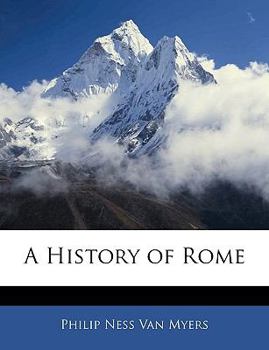A History of Rome
Select Format
Select Condition 
Book Overview
"A History of Rome" by Philip Ness Van Myers offers a comprehensive overview of one of history's most influential civilizations. Tracing Rome's journey from its mythical founding through the Republic and the rise and fall of the Empire, this volume explores the political, social, and military events that shaped the ancient world.
With meticulous detail, Van Myers examines key figures such as Julius Caesar, Augustus, and Nero, while also delving into the cultural and intellectual achievements of Roman society. From the Punic Wars to the construction of the Colosseum, "A History of Rome" provides readers with a thorough understanding of Rome's enduring legacy and its impact on Western civilization. This book remains a valuable resource for students, scholars, and anyone interested in the rich tapestry of Roman history.
This work has been selected by scholars as being culturally important, and is part of the knowledge base of civilization as we know it. This work was reproduced from the original artifact, and remains as true to the original work as possible. Therefore, you will see the original copyright references, library stamps (as most of these works have been housed in our most important libraries around the world), and other notations in the work.
This work is in the public domain in the United States of America, and possibly other nations. Within the United States, you may freely copy and distribute this work, as no entity (individual or corporate) has a copyright on the body of the work.
As a reproduction of a historical artifact, this work may contain missing or blurred pages, poor pictures, errant marks, etc. Scholars believe, and we concur, that this work is important enough to be preserved, reproduced, and made generally available to the public. We appreciate your support of the preservation process, and thank you for being an important part of keeping this knowledge alive and relevant.
Related Subjects
History




